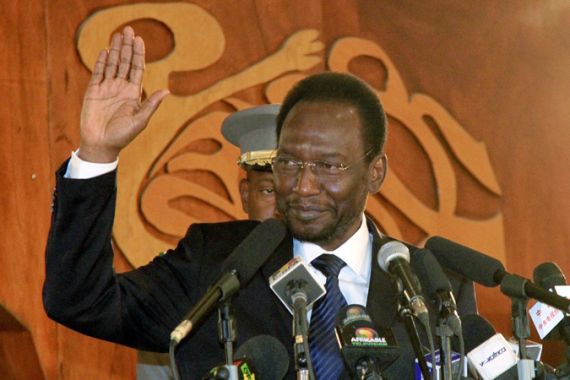ECOWAS troops for Guinea-Bissau and Mali
Regional body to send troops to both West African states to help swiftly reinstate civilian rule after coups.

West African leaders will send troops to Mali and Guinea-Bissau to help both countries to return to civilian rule after military coups, and have threatened sanctions if junta leaders attempt to hold on to power.
The Economic Community of West African States, or ECOWAS, said in a statement after an emergency summit on Thursday that it would be sending troops to Mali to support the transitional government’s fight against rebels that control the country’s north.
“The heads of state and of government decided to take all the necessary measures in order to assist Mali in the re-establishment of its unity and of its territorial integrity,” the statement, released after the meeting in the Ivory Coast city of Abidjan, said.
Between 500 and 600 troops will also be sent immediately to Guinea-Bissau, it said.
Mutinying soldiers in Mali overthrew the government on March 22, while the army of Guinea-Bissau seized power and derailed presidential elections during a coup on April 12.
Paul Koffi Koffi, Ivory Coast’s deputy defence minister, told Associated Press news agency said that the West African regional bloc would be sending “at least 3,000 troops to Mali”.
The junta in Mali has already handed over power to an interim civilian government under the presidency of Dioncounda Traore as part of a deal brokered by ECOWAS.
Traore faces the twin challenges of holding elections and asserting control over northern parts of the country that are now controlled by Tuareg separatists.
The Tuareg fighters have declared independence in the region they refer to as Azawad. Their armed uprising to take control of that area involved an alliance with armed groups who are also calling for the imposition of Islamic law in the area.
Threat of sanctions
ECOWAS expects both Mali and Guinea-Bissau to organise and hold presidential elections in 12 months, and has demanded that people detained during the coups be released. The bloc also called for the safety of ousted officials to be guaranteed.
ECOWAS has told coup leaders in Guinea-Bissau that if they fail to agree to the deployment of the bloc’s troops within 72 hours, they could face targeted sanctions.
“We first expect negotiations,” said Desire Kadre Ouedraogo, the ECOWAS commission chief, on the crisis in Guinea-Bissau. “The first contingent has a peacekeeping role and will secure the transition, but it cannot be excluded that combat units will be sent later” should the talks fail.
At least four countries – Nigeria, Togo, Ivory Coast and Senegal – will provide the troops for that deployment, he said.
Guinea-Bissau’s self-declared Military Command announced plans last week to set up a transitional government charged with holding elections in 2014, but the proposal was rejected by the United Nations, ECOWAS and the African Union.
The army took power on April 12, during presidential elections which Carlos Gomes Junior, the current prime minister, was expected to win.
Soldiers say they staged the coup because Gomes was allegedly planning to reduce the size of the army.
Raimundo Pereira, the country’s interim president, and Gomes Junior were both arrested during the coup.
Daha Bana na Walna, a spokesman for the Military Command, said last week that any foreign force arriving on Guinea-Bissau soil would be treated as occupiers.
The Military Command sent a delegation to Thursday’s ECOWAS summit, but there was no word on whether the junta would accept a military intervention on the part of the bloc.